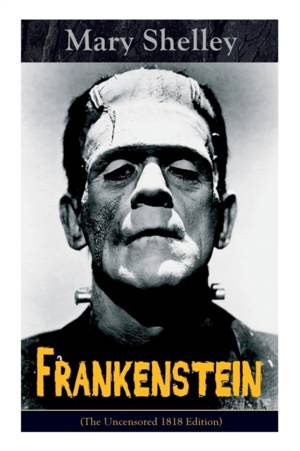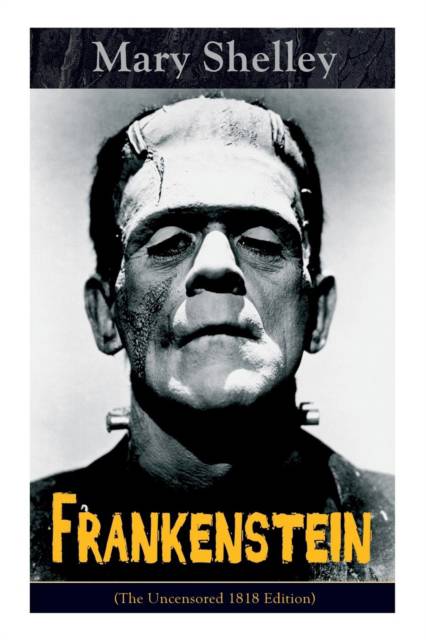
- Afhalen na 1 uur in een winkel met voorraad
- Gratis thuislevering in België vanaf € 30
- Ruim aanbod met 7 miljoen producten
- Afhalen na 1 uur in een winkel met voorraad
- Gratis thuislevering in België vanaf € 30
- Ruim aanbod met 7 miljoen producten
Zoeken
Frankenstein (the Uncensored 1818 Edition)
A Gothic Classic - Considered to Be One of the Earliest Examples of Science Fiction
Mary Shelley
Paperback | Engels
€ 8,45
+ 16 punten
Uitvoering
Omschrijving
Mary Shelley's "Frankenstein (The Uncensored 1818 Edition)" is a pioneering work of science fiction that delves into the ethical dilemmas posed by unchecked ambition and the quest for knowledge. Written in a vivid Gothic style, the narrative oscillates between chilling horror and profound philosophical inquiry, exploring themes of creation, monstrosity, and alienation. Set against the backdrop of the early 19th century, a time of scientific revolution and Enlightenment thought, Shelley addresses the consequences of man's desire to usurp the role of God through the tragic tale of Victor Frankenstein and his monstrous creation, challenging the reader to confront the moral implications of technological advancement. Mary Shelley, born in 1797 to the renowned thinkers William Godwin and Mary Wollstonecraft, was steeped in the currents of Romanticism and the burgeoning fields of science. Her experiences with loss, her tumultuous relationship with the poet Percy Bysshe Shelley, and her exposure to scientific debates of her time deeply influenced her conception of "Frankenstein." The novel, born from a famously stormy night in Switzerland, reflects her preoccupations with identity, societal rejection, and the nature of humanity. This unabridged edition serves as a crucial touchstone for readers seeking to understand the fulcrum of modern literature and existential philosophy. Shelley's timeless exploration of the human condition through the lens of horror and intellectual inquiry makes this edition an essential read for anyone interested in the implications of scientific progress and the complexities of moral responsibility.
Specificaties
Betrokkenen
- Auteur(s):
- Uitgeverij:
Inhoud
- Aantal bladzijden:
- 124
- Taal:
- Engels
Eigenschappen
- Productcode (EAN):
- 9788027331192
- Verschijningsdatum:
- 15/04/2019
- Uitvoering:
- Paperback
- Formaat:
- Trade paperback (VS)
- Afmetingen:
- 152 mm x 229 mm
- Gewicht:
- 176 g

Alleen bij Standaard Boekhandel
+ 16 punten op je klantenkaart van Standaard Boekhandel
Beoordelingen
We publiceren alleen reviews die voldoen aan de voorwaarden voor reviews. Bekijk onze voorwaarden voor reviews.








